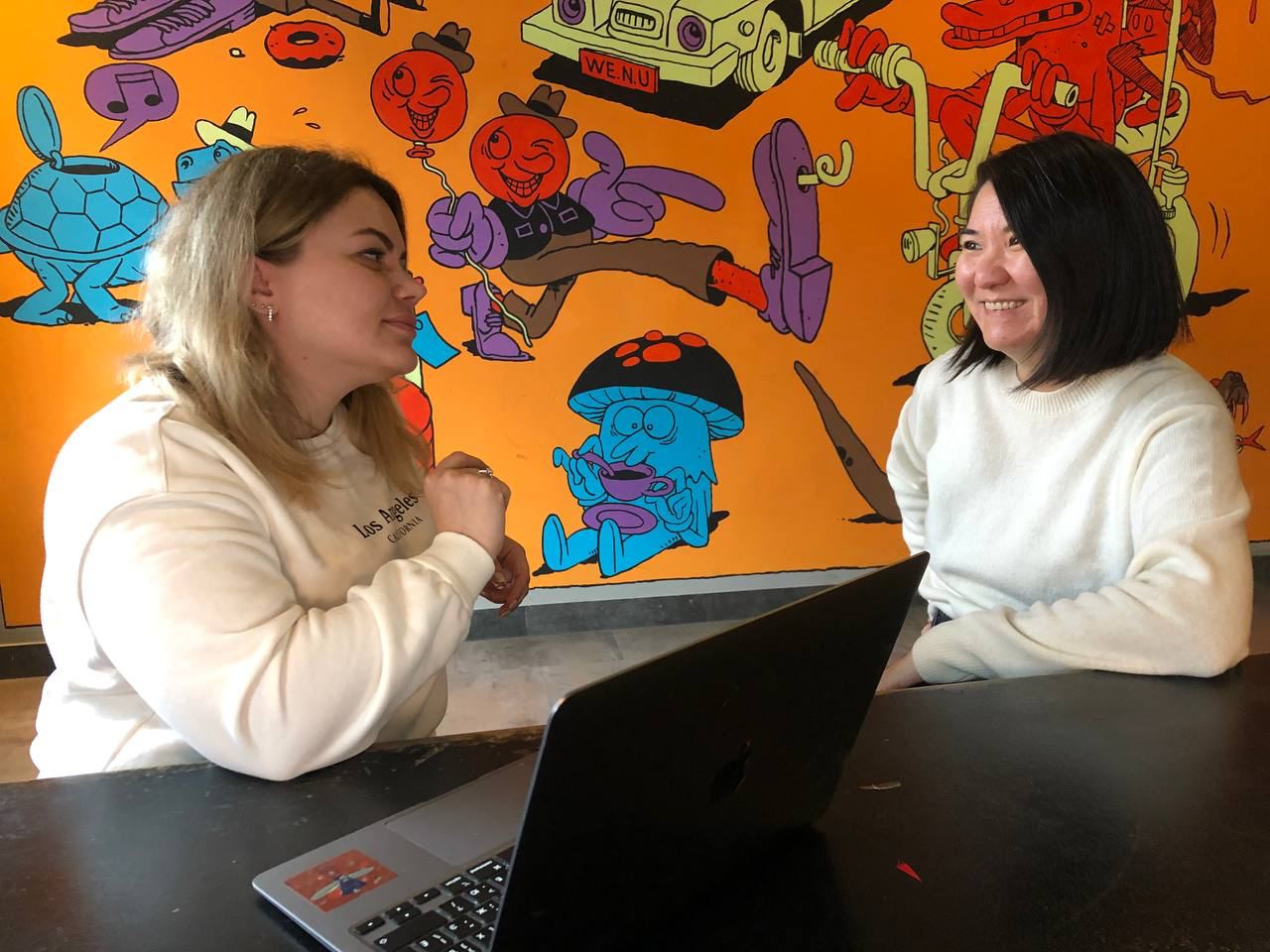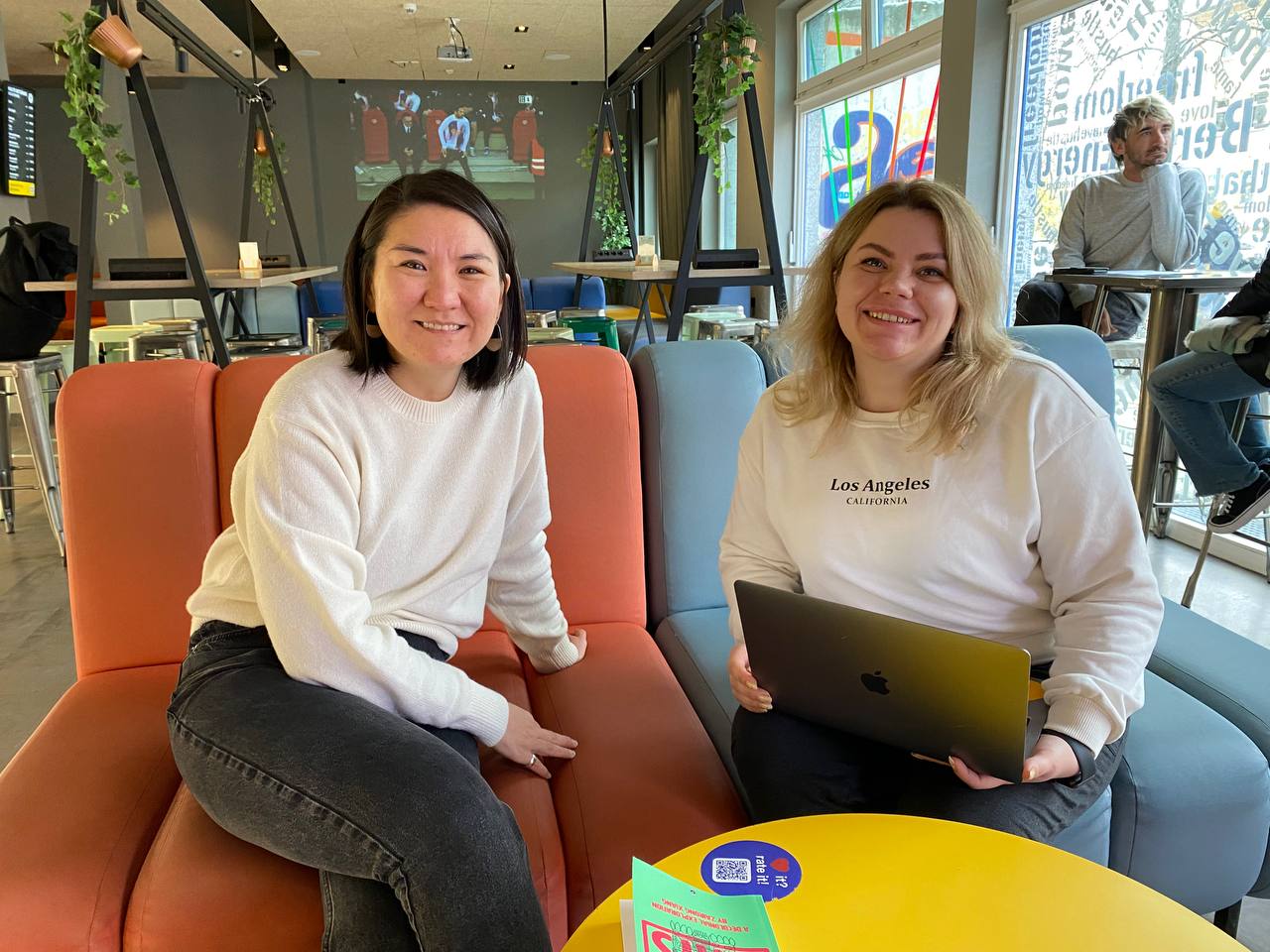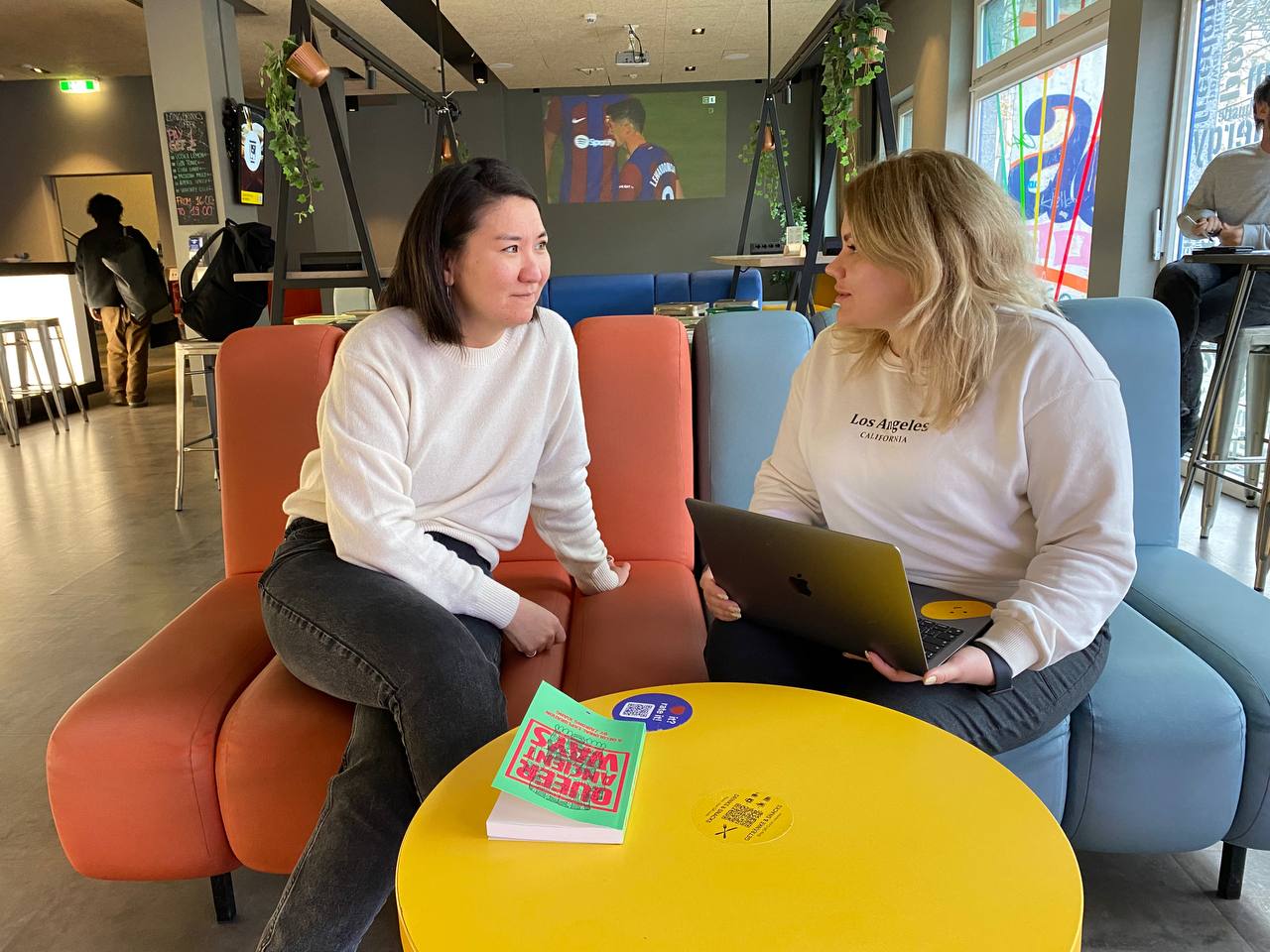The world must hear the voices of ethnic groups. Interview with Elmira Kakabayeva
In Berlin, a workshop titled “How to Decolonize and Preserve Memory” took place. Knowledge and new working methods were shared by journalist, social anthropologist, writer, founder of an online writing course for women, co-founder, and editor of the literary project Qantar.Jazylu, Elmira Kakabayeva. So, can one person influence the processes of decolonization?
The answers were received by the journalist Darina Vorona from the Djanes magazine."

Anthropologist Elmira Kakabayeva is on the right.
Decolonization is the legal process of gaining sovereignty and complete independence from a hegemonic country. And it, in fact, has been completed. Today, we do not have African colonies of France or England. Decolonism is an ongoing process. It involves freeing nations from the inferiority complex, returning to their own ethnic traditions, and understanding the consequences left by colonial states.
Eurocentrism is the perception of the European continent as the center of cultural-historical development for humanity. European achievements are taken as the standard in any sphere, whether it be culture, art, or forms of state governance. It is a biased view that favors Western civilization over non-Western ones.
Therefore, today, we are specifically discussing decolonism as the liberation from the imposed worldview and values.
The academic moment has ended. Now, let's cut to the chase.
- Our workshop was emotional, personal. But ethnography is a science. So what prevails in it: dry objectivity or humanity and personalization?
- Ethnography is a specific type of science. Of course, it adheres to accuracy, reliability, all scientific foundations. But it studies people. And that is precisely about emotionality, personal attitude.
In conducting any research, we are still inseparable from our human beliefs and worldview. And this is the subjectivity that remains in scientific work.
-And personally, pure anthropology felt insufficient for me. I felt confined within the rigid scientific framework. So, I ventured further. Data, research, discoveries are important even in creativity. Based on them, one can write essays, poetry, or an extensive novel. Thus, I merged science and creativity and embodied it in my course. This approach helps me specifically.

- Have anthropological approaches changed overall?
- Yes, of course. Anthropology was initially a colonial product. For example, a British scientist would come to India to study their communities through the lens of his own culture and perspectives. Then there was a kind of crisis in the discipline. Scholars realized that something needed to change. And today, the emphasis is on having representatives of a particular ethnic group speak about their communities, for instance, Indian communities.
Yes, that's exactly how urban anthropology originated because it became intriguing: how do people live in the ghettos of New York?
- And is this better? So now we're talking about the principle of "equal to equal"? When there's no outsider who comes and observes the lives of others from above.
- It's complicated. Because this objectivity both restricts and, at the same time, is subjective. Yes, it's important that the history is told by a representative of the community. That it's a voice from within the community.
But the community itself is not homogeneous. Someone may have Western education, while others may have none at all. And these people will have different perceptions of their own group.
The crucial question here is positional: from which standpoint are you speaking in your research? It's not about objectivity; it's about different perspectives, telling different stories, narratives from people of different groups.
In other words, the more voices, narratives, the better. Only different points of view can provide a more complete picture.
- But what's the purpose of all these studies? Collecting stories, art based on ethnography... What is the goal of modern anthropology?
- All social sciences help us understand the world and what's happening in it. The rules that exist in this world, its peculiarities. And to understand this world, you need to hear several voices. We cannot rely on a single source. Everything is done to explain to ourselves and our future readers why things are happening exactly this way and not otherwise.

- What about colonial manifestations in the modern world? Perhaps they exist under a different name?
- It's a complex question. Is there still colonialism and coloniality? Of course, there is. But it all depends on how you look at it. In a sense, when we talk about capitalism, neoliberalism, when we examine certain aspects of economic development, we encounter manifestations of colonial perspectives. After all, even today, we use the term "third world countries." And large organizations like the UN, for example, help develop these countries. And again, the question arises: how do you know how to develop these countries better? Again, someone comes with their own rules, their understanding of this world. And the people themselves say, "Sorry, it doesn't work for us. Our way of doing things is different."
I am currently speaking very generally. However, this is also a problem in research and proposed solutions. The concept of the "third world" is taken as a whole. For example, how to develop the economy through agriculture. But the community does not want or cannot do this. Their culture is different, their perspectives are different. They are more inclined, for instance, towards animal husbandry. This was also the case with the Kazakhs. The Soviet Union came, saw vast land holdings, and decided that the fields needed cultivation and planting. Forgetting that the Kazakhs had always been engaged in livestock grazing and, in general, animal husbandry.
Замість висновків (Instead of conclusions) idk it’s edit or not
Coloniality will outlive colonialism. States are already free and self-sufficient, but...
But the division into the first, second, third echelons persists. The equation with Europe as the standard of development endures. But...
But there are shifts. Increasing attention to indigenous peoples and ethnic groups. Recognition of the crimes and mistakes of the past. And today, the voice of each individual matters.
What can one person do to preserve and decolonize memory – in the next material.
See also
- Медіавплив однієї історії: роми, танк, війна і суспільне сприйняття
- AURA об’єднує: ромська ініціатива з українським корінням у Німеччині
- Вижили і змінились: Юліан Кондур про ромський правозахист й дорослішання суспільства під час війни
- Інший – не означає ворог. Як змінити ставлення до ромської громади?
- Roma people in Ukraine: ‘heroes’ of criminal reports or full-fledged citizens?
- David Stulik, diplomat: «Regardless of which ethnic group a person belongs to if he or she is defend
- Romani Artist Natali Tomenko: “Art Provides a New Perspective on This Time”
- Roza Tapanova: «The task of our institutions is to work with senses»
- Чому ми боїмося ромів: коріння стереотипів та як з ними боротися
- «The matter of non-supporting ethnic minorities should be ruled out altogether», – Oleksandr Osipov